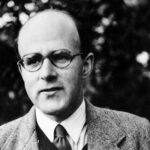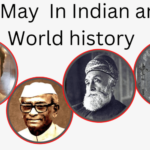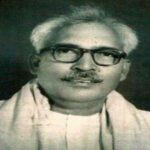Every year, a unique celebration takes place in the heart of the Basque Country on 25th of October. This celebration, known as Basque National Day, is a vibrant display of unity, culture, and heritage. It’s a day when the Basque people come together to honor their rich history and shared identity. From traditional music and dance to the distinctive Basque language, this day is a testament to the enduring spirit of the Basque community. Join us as we delve into the significance and festivities of this remarkable day.
About Basque (Spain)
The Basque Country is a region located in the western Pyrenees, straddling the border between France and Spain on the coast of the Bay of Biscay. It encompasses several territories inhabited by the Basque people, known as Euskal Herria in the Basque language. Here are some key points about the Basque Country:
- Greater Region of the Basque Country:
- The greater region of the Basque Country includes the Autonomous Communities of the Basque Country and Navarre in Spain and the Northern Basque Country in France.
- It is home to the Basque people, their language (Euskara), culture, and traditions.
- The area is not linguistically or culturally homogeneous, and certain regions have a majority of people who do not consider themselves Basque, such as the south of Navarre.
- Basque Country (Autonomous Community):
- The Basque Country, also known as the Basque Autonomous Community, is an autonomous community in northern Spain.
- It includes the Basque provinces of Álava, Biscay, and Gipuzkoa.
- The Basque Country was granted the status of nationality within Spain according to the Spanish Constitution of 1978.
- The autonomous community is based on the Statute of Autonomy of the Basque Country, which provides the framework for the development of the Basque people on Spanish soil.
- Territory and Demographics:
- The Basque Country is bounded by the Bay of Biscay to the north and shares borders with other Spanish autonomous communities.
- While the concept of the Basque Country remains controversial, it remains a significant cultural and linguistic region with a rich heritage.
HISTORY OF BASQUE NATIONAL DAY
The Basque National Day, known as “Euskadi Eguna” in the Basque language, is a significant date in the calendar of the Basque people. It is a day that commemorates the unique history and culture of the Basque Country, a region that spans across northern Spain and southwestern France. The origins of this day are deeply rooted in the Basque people’s enduring spirit and their long-standing aspirations for greater autonomy. The Basque National Day is observed on October 25th, marking the anniversary of a pivotal moment in Basque history. On this day in 1979, a referendum was held and approved, which defined the political structure of the Basque region as an autonomous community within Spain. This event was a culmination of centuries of struggle for recognition and self-determination, a journey marked by periods of both peaceful advocacy and violent conflict. The Basque people have a distinct identity, with their own language, traditions, and customs that predate many modern European states. Their language, Euskara, is one of the oldest living languages in Europe and is unrelated to any other language family. The Basques’ quest for autonomy can be traced back to the Middle Ages when they enjoyed a degree of self-governance under the Kingdom of Navarre. However, over the centuries, their autonomy was challenged and often suppressed by various ruling powers.
The 19th and early 20th centuries saw a resurgence of Basque nationalism, which sought to preserve the Basque language and culture and advocated for political autonomy. The repression of Basque identity under the Francoist regime in Spain, particularly the prohibition of the Basque language and the bombing of the Basque town of Guernica during the Spanish Civil War, further galvanized the Basque nationalist movement. The establishment of Basque National Day is a testament to the resilience of the Basque people. It celebrates their cultural heritage and the achievements of their nationalist movement, which has successfully secured a degree of self-governance and the preservation of their language and traditions. The day is marked by cultural events, including traditional music, dance, and sporting activities, reflecting the pride the Basque people take in their distinct identity.
The history of Basque National Day is not just a local or regional story; it is also a narrative of a people’s enduring struggle for cultural survival and political recognition. It serves as a reminder of the importance of cultural diversity and the right to self-determination in our increasingly interconnected world. As we reflect on the history of Basque National Day, we are reminded of the rich tapestry of human history and the ongoing efforts of communities around the globe to preserve their unique identities in the face of globalization. The Basque National Day stands as a symbol of hope and perseverance for all those who strive to maintain their cultural heritage and autonomy.
SIGNIFICANCE OF BASQUE NATIONAL DAY
Basque National Day, known as ‘Euskadi Eguna’ in Basque, is a significant celebration for the Basque people, marking their unique culture and history. It’s a day filled with festivities that honor their distinct language, traditions, and aspirations for greater autonomy. The day serves as a reminder of the Basque Country’s rich heritage and its ongoing quest for self-determination. It’s a time for reflection on past struggles and a celebration of the vibrant Basque identity that continues to thrive despite challenges.
BASQUE NATIONAL DAY CELEBRATION
The Basque National Day, known as Aberri Eguna, is a significant celebration for the Basque people, coinciding with Easter Sunday. This day is deeply rooted in the Basque nationalist movement and was first organized by the Basque Nationalist Party in 1932. Aberri Eguna symbolizes the Basque identity and culture, which has been preserved through language, traditions, and a strong sense of community despite the Basque Country’s political division between Spain and France. The day is marked by various events, including political rallies and cultural festivities, reflecting the dual nature of the celebration as both a political statement and a celebration of Basque heritage. While not an official public holiday, Aberri Eguna serves as an unofficial national day for the Basque people, showcasing their unique history and aspirations for greater recognition and autonomy. Additionally, the Basque Country observes October 25th as a public holiday, known as ‘Euskadi Eguna’, further emphasizing the region’s distinct identity within Spain.
Some of the Activities held on BASQUE NATIONAL DAY are as Follow –
- Activities often include conferences, film screenings, and talks to promote Basque language and culture globally.
- Celebrations take place not only in the Basque Country but also internationally, with events organized in cities across Europe and the Americas.
- The Etxepare Basque Institute plays a significant role in coordinating these events, aiming to raise awareness of Basque traditions and customs worldwide.
FACTS ABOUT BASQUE NATIONAL DAY
Here are some interesting facts about BASQUE NATIONAL DAY:
- Basque National Day commemorates the approval of the Basque Statute of Autonomy, which was established following a referendum on October 25th, 1979.
- The Statute provided a framework for the autonomy of the Basque region, defining its political structure within Spain.
- The day was officially designated as a holiday by the Basque Parliament on April 22nd, 2010, and has been celebrated since 2011.
- The Basque people have a unique culture and language, with Euskara being distinct from any other language and spoken by approximately 28% of Basques today.
- There are at least six Basque dialects, and the majority of Basques speak a standardized version developed in the 1960s.
- The Basque ethnic group is one of the oldest in Europe, with a history of pride, oppression, and struggle for independence.
- Traditional celebrations during Basque National Day include folk music, dancing, and rural sports, reflecting the rich cultural heritage of the Basque people.
- The Basque language, Euskara, experienced a revival after the end of Francisco Franco’s regime, during which it was banned.
- San Fermín, or ‘The Running of the Bulls’, is one of the most famous festivals in Basque culture, held annually in Pamplona.












